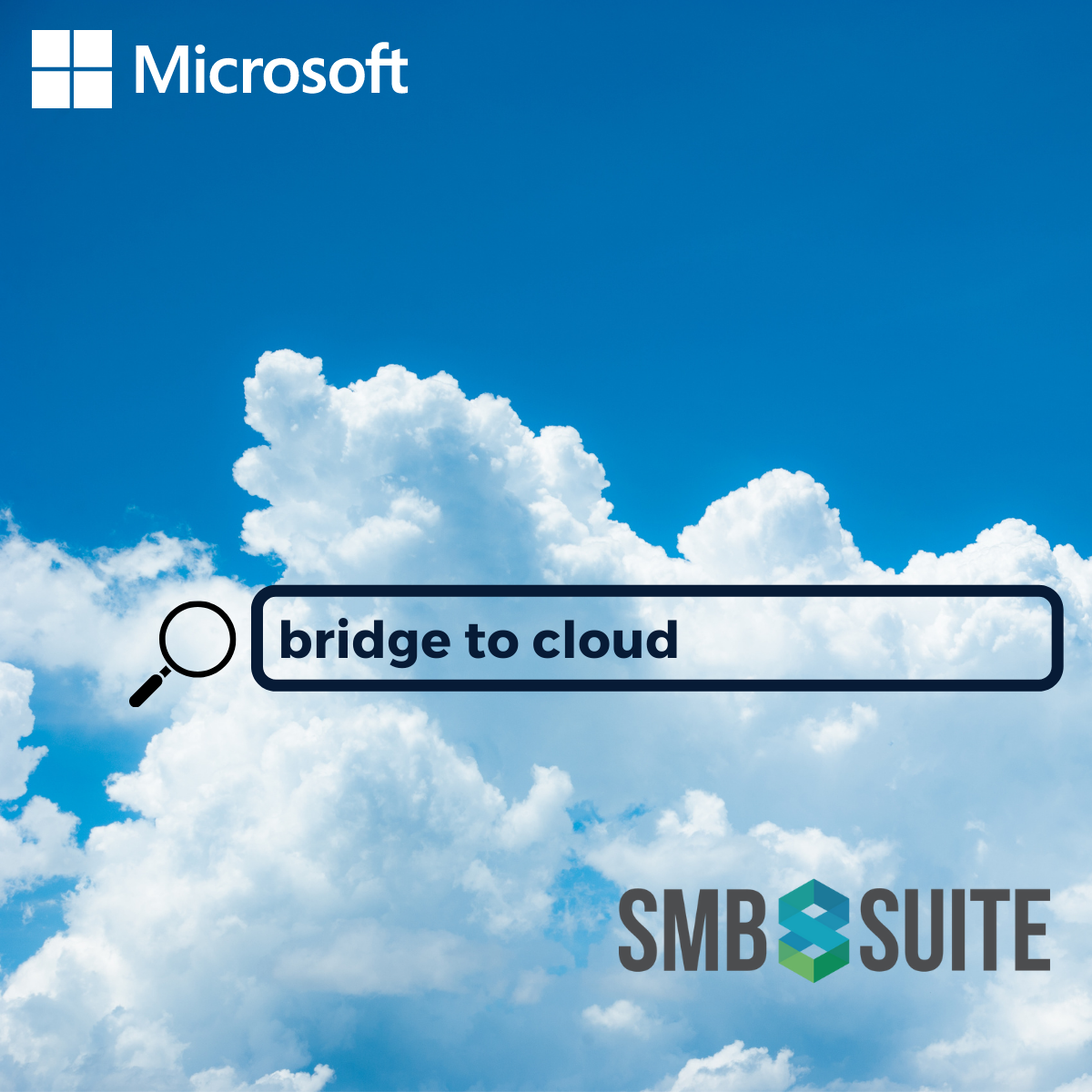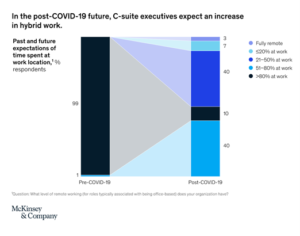
Is 2021 the right time to make a move from Dynamics GP?
Part 2 of a 3 part blog series discussing the Dynamics GP Long-term Strategy.
This article discusses Microsoft’s Bridge to Cloud program which makes moving from Dynamics GP to Business Central much easier financially. But there are other reasons to consider a move that we will discuss.
At some point, every company needs to evaluate if the business system that got them where they are today, is going to continue getting them where they want to go into the future.
That’s normal. Technology and its adoption move quickly. Our beloved Dynamics GP is no exception. While Microsoft recently announced that this workhorse has an extended product roadmap for at least another eight years into the future, your business may be facing other pressures and may need to consider if Dynamics GP is the product to grow with their business?
3 Reasons why now might be the time to consider a move from GP.
1) Hybrid work
The pandemic has taught us a few lessons in business. But one lesson that will forever change our work patterns is how important it is to support our employee’s ability to work from anywhere. Not being able to do so will have an impact on our ability to recruit, and we ensure our employees are productive. A recent McKinsey study illustrates this. While nearly 99% of all work was done in the office prior to the pandemic, post-pandemic only 10% will be in office, at least according to this survey. Maybe this is the case for your business too.

Source: McKinsey
Dynamics GP was architected over 20 years ago. As an on-premise accounting system – one that sits on a server supporting people within the four walls of a business. It was never envisioned that people would need to access sensitive information from remote. Sure there are ways around it with remote desktop capability and lifting your server into the cloud, but this isn’t the same as a cloud-based architecture, a fact that most of us can recently attest to.
Microsoft’s more modern accounting and ERP platform, Business Central, was architected for the cloud from birth. It is tightly integrated into productivity tools like Office 365, MS Teams, and Power BI reporting with native hooks and integration. It’s built to run on any device from any location without impediment. It’s built with a security-first architecture so there is no risk of malware or ransomware intrusion which is on the rise in small to mid-sized businesses.
Bottom line, if a hybrid-work policy is in your future, now might be the time to think about a transition.
2) How we do business has changed
Go back 20 years, are you doing business the same way? Meaning, do you offer the same products, sell to the same customer segments, distribute through the same channels, support customers the same way? Odds are, no. It is likely your business has faced pressures in how it does business. Did your internal processes keep up with it?
There is a possibility you may have done what you could do over the years to stitch things together as new challenges come up. Examples could include e-commerce, or how you distribute, or how you support customers. Well, these days, your accounting systems do a lot more than accounting. They are intricately tied to every part of the business, no matter your industry. How you manage supply chain, purchase goods, process sales orders, manage inventory. Or if you are in a service delivery industry, how you contract, schedule resources, and invoice customers. Workers are now knowledge workers and need good insights to make data-driven decisions. This information needs to happen in real-time on-demand. Cloud architecture supports all of this.
In the coming year, you have a chance to rethink some of these operating constraints and address them with a modern platform.
3) Bridge to Cloud: Microsoft is making it financially easy to shift
On September 1, 2021, Microsoft is announcing the ‘Bridge to Cloud’ promotion. Existing Dynamics GP customers can renew their Enhancement on a monthly basis and receive Dynamics 365 Business Central online licenses at a 60% discounted price for up to four years. Customers who enroll in this promotion can continue to use their on-premises product in parallel with Business Central online while maintaining Enhancement benefits on their on-premises license throughout the promo term.
Conclusion
With the convergence of this pricing incentive, business change, and technology advancement; now might be the right time to put a Dynamics GP Migration on the radar for 2021 or 2022.
Speak to one of SMB Suite’s experts on how to plan for migration the right way. Many of our customers do this as a two-step strategy. Moving Dynamics GP to the cloud, and then planning for GP to Business Central migration on their terms. Our next blog will cover the top considerations when migrating from Dynamics GP to Business Central. Stay tuned!
